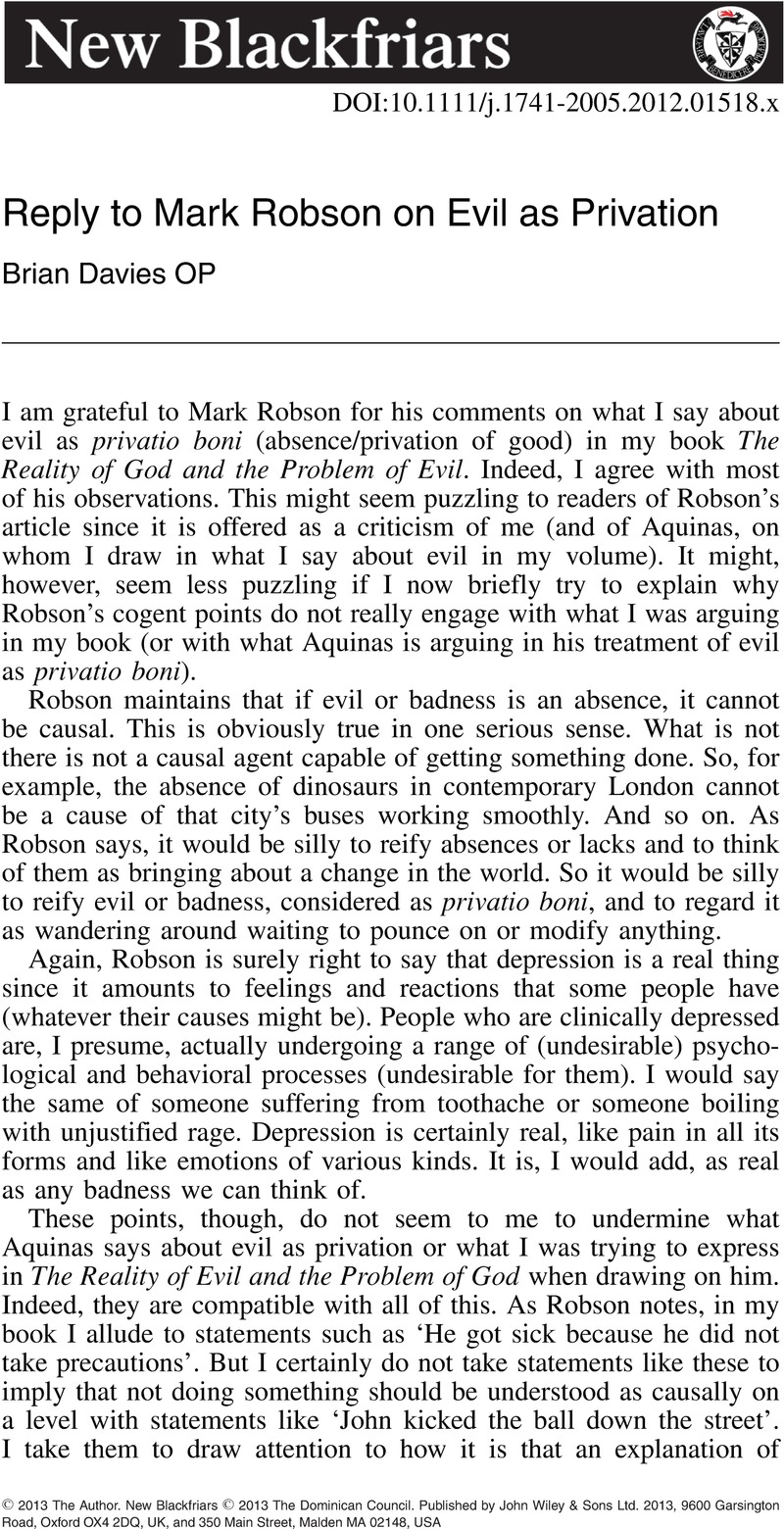Crossref Citations
This article has been cited by the following publications. This list is generated based on data provided by Crossref.
de Ray, Christophe
2024.
Corruptio boni: An alternative to the privation theory of evil.
Ratio,
Vol. 37,
Issue. 2-3,
p.
191.
Keltz, B. Kyle
2025.
The Palgrave Handbook on the Problem of Animal Suffering in the Philosophy of Religion.
p.
269.


